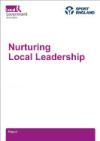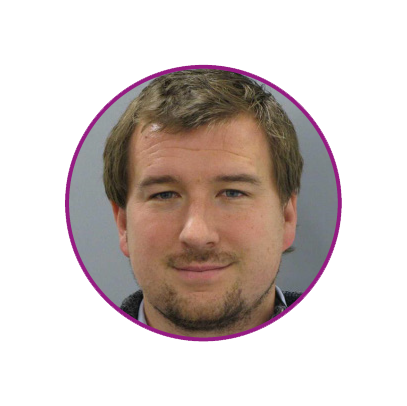On performance in role
The three aspects of their leadership role that participants said the programme had helped them improve the most, were:
- Their ability to understand the changing context within which they work.
- Their ability to build relationships with a coalition of willing people and develop a common purpose.
- Their ability to reframe their message and case/arguments in a way that influences those who can facilitate change.
Additional positive experiences and impact shared by participants included:
- A new-found confidence.
- A fresh perspective both on their role, the challenges they face and how they could work more effectively with others, gained through engaging with participants from different organisations and areas of the country.
- A new style of leadership, enhanced listening skills, increased empathy and understanding of inclusivity and the co-production approach.
- A better understanding of the wider context within which their work is based.
- The skills to take a systems-based approach, interacting meaningfully with different parts of the system.
- Increased empathy and understanding, for example, acknowledging that change within various organisations is developing at different rates.
On the wider organisation
Participants reflected on the extent to which what they learned through the programme had enabled them to have a positive impact on the work of their organisation, department or team.
Areas where impact was most commonly identified were:
- Understanding of system thinking and system change.
- Ability to work towards increasing physical activity for those in most need.
“I have applied this learning [from the programme] to my role and to projects I am working on. I have tried to identify key community contacts that can help us engage target audiences to be physically active, a great example of this is the Active Sussex Crawley Workforce Project.
"We have identified several members of the South Asian community (in line with a ‘person like me’ approach) to receive funding to access additional training/qualifications, to enable them to deliver high quality sport and physical activity to identified target audiences."
Active Sussex
Participants shared examples of where they, their organisation or team were now doing things differently as a result of going through the programme.
Examples included:
- Partnership working, for example some participants noted that relationships with health and public health professionals were now stronger strategically and operationally, and that they now had strengthened links with active partnerships and leisure providers.
- Community engagement, for example engaging at the local level, looking outwards and adopting a more locally focused approach than previously, had allowed some participants to understand and provide more effectively for the needs of their residents.
- Understanding and influencing the wider context, for example a developing awareness at a corporate level of the impact that sport and physical activity could have across a range of different areas and the role of physical activity within wider health and well-being agendas.
- Evolving their leaderships style, for example, adopting a more facilitative approach and being better able to influence discussions when engaging with a wider range of partners
On system leadership
Many participants have said that they are engaging or have attempted to engage with other service areas, in order to seek mutual support between their outcomes and those for local sport and physical activity. Most commonly mentioned were public health, adult social care, transport, planning, children’s services, parks, leisure and housing.
Challenges that respondents had encountered when engaging with other service areas included issues around the different priorities, focus and understanding of other services, convincing others that physical activity can link into and enhance their agendas and challenges moving positive conversations into tangible action.
Positives coming out of this engagement included:
Developing stronger working relationships, sharing views on cross cutting areas of work and developing opportunities together through co-production.
Developing relationships and engagement across the system and at all levels of the system and within geographical areas. Navigating systems with a lens of embedding being active and developing understanding with partners about how this may look and the part they can play.
Showing colleagues how they might apply whole systems approaches in their areas to better understand how they can have an impact.
Challenges of applying the learning
Participants shared information about the reasons why they had not been able to make as much progress as they would have liked in using the learning following the programme (either in terms of their own leadership or the wider impact on their organisation or others).
The COVID-19 pandemic, for example, some respondents said this had hindered their ability to expand their work as planned and to find time to engage with alumni activities, with others saying that their organisations were working in a ‘survival’ mode.
Workplace culture, for example, difficulty finding common purpose, a lack of opportunity to engage, pockets of resistance to change, and some departments not recognising the value of physical activity to their work.
Workload pressures and capacity issues, with some saying that large workloads allowed them little time for personal development, reflection or planning and it was difficult to carve out time for this.
"I have engaged with colleagues in planning and as a result they have offered to include me in the planning applications consultation group so I can influence decisions that may affect citizen movement."
- Local authority






